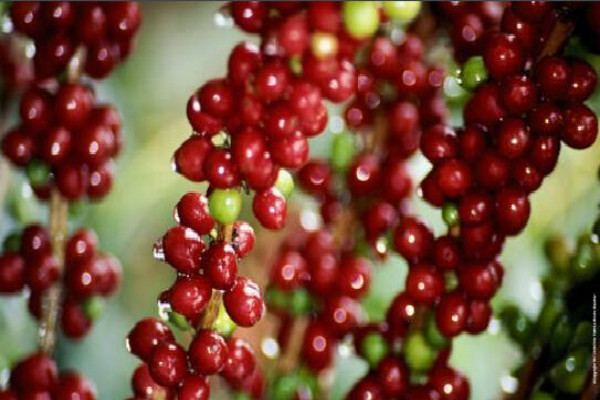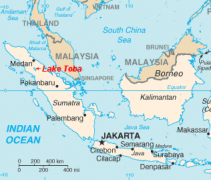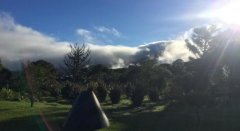How to choose coffee processed by a variety of small farmers in Ethiopia? water washing G1 recommendation in Lim producing area
For professional baristas, please follow the coffee workshop (Wechat official account cafe_style)

Ethiopian lim G1 washing
(Ethiopia Washed Limu G1)
Flavor description: exquisite flower flavor, apple, aloe,
The bright acidity of kumquat, the changeable taste of kumquat, the middle and rear part of kumquat are transformed into fragrant lemon,
Sandalwood, with a sweet finish of cocoa.
Country of origin: Ethiopia (Ethiopia)
Producing area: Limu producing area
Variety: Heirloom (native)
Producer: local coffee farmers in Limu
Altitude: 1850 to 1900 m
Grade: washed G1
Harvest time: October of each year to February of the following year
Soil: Vertisols soil
There are eight major coffee producing areas in Ethiopia: Ekempti, Limu, Illubabor,
Djimma 、 Harrar 、 Teppi/Bebeka 、 Sidamo 、 Yirgacheffe .
Ethiopian coffee is highly rated in Taiwan, especially the Ethiopian Harrar.
The three well-known producing areas of Sidamo and Yirgacheffe are special.
Interested and loved. Sidama province is located in the south of Ethiopia and Arsi province in the north.
It extends to the east to the province of Bale and to the west is the administrative district of Gamu Gofa. Sidama province
The jurisdiction of the district includes Yirgacheffe and Kochere.
A well-known producing area. The main industry is agriculture, and the growing area of coffee is located in East Africa.
Around the Great Rift Valley (Great Rift Valley). Generally speaking, Limu producing areas are mainly
Mainly washed beans, taste milder than Sidamo, often with sweet lemon and citrus
Although not as famous as coffee from Sidamo or Yegashifi, it also has
Produce a lot of coffee beans with special flavor. The producers of Limu coffee beans are local small farmers.
Mainly, but there are also some large state-owned estates in this producing area. The local coffee is produced at an altitude of
1400-2200m, mainly native species, and the production season is between November and January.
This batch of Limu production area washing G1 is located in the northwest of Djimma (Limu)
Within the area, it is produced by local coffee farmers in the Limu producing area, and is graded by EXC cup test.
Listed as the highest grade G1, it is a raw bean with high C / P value. Often taste Yega Sheffield and Sidamo
Coffee friends, today I would like to have a different cup of water-washed G1 coffee from Limu.
Different coffee topics. Coffee cultivars are native to Ethiopia (Heirloom).
Local coffee farmers grow it in a 100% organic way. Soil is metamorphic (Vertisols)
Soil. Grow between 1850 and 1900 meters above sea level.
Limu coffee has exquisite floral flavor and brightness of apple, aloe and kumquat.
The acidity and varied layers of the palate are transformed into a sweet finish of lemon, sandalwood and cocoa in the middle and back.
Important Notice :
前街咖啡 FrontStreet Coffee has moved to new addredd:
FrontStreet Coffee Address: 315,Donghua East Road,GuangZhou
Tel:020 38364473
- Prev

Manning & Gold Manning difference Why is there so much price difference between Manning and Gold
The exchange of professional baristas follow the coffee workshop (Wechat official account cafe_style) in recent years, many consumers often ask what is the difference between the two coffee beans, that is, they all come from the Indonesian island of Sumatra. Why is there such a big difference in price between Manning and Golden Manning? Manning and Huang
- Next

Wash native species Rosa / Geisha Coffee Flavor description Lot#94 batch in Rosa Village, Ethiopia
Professional barista exchanges please follow the coffee workshop (Wechat official account cafe_style) Ethiopia Rosa Village (geisha village) manor washing geisha Lot#94 (Ethiopia Gesha Village Coffee Estate Washed Geisha Lot#94) flavor description: caramel, lemon, peach blossom, floral tail, bright and rich tropical fruit aroma, ripe fruit aroma, orange
Related
- Detailed explanation of Jadeite planting Land in Panamanian Jadeite Manor introduction to the grading system of Jadeite competitive bidding, Red bid, Green bid and Rose Summer
- Story of Coffee planting in Brenka region of Costa Rica Stonehenge Manor anaerobic heavy honey treatment of flavor mouth
- What's on the barrel of Blue Mountain Coffee beans?
- Can American coffee also pull flowers? How to use hot American style to pull out a good-looking pattern?
- Can you make a cold extract with coffee beans? What is the right proportion for cold-extracted coffee formula?
- Indonesian PWN Gold Mandrine Coffee Origin Features Flavor How to Chong? Mandolin coffee is American.
- A brief introduction to the flavor characteristics of Brazilian yellow bourbon coffee beans
- What is the effect of different water quality on the flavor of cold-extracted coffee? What kind of water is best for brewing coffee?
- Why do you think of Rose Summer whenever you mention Panamanian coffee?
- Introduction to the characteristics of authentic blue mountain coffee bean producing areas? What is the CIB Coffee Authority in Jamaica?

